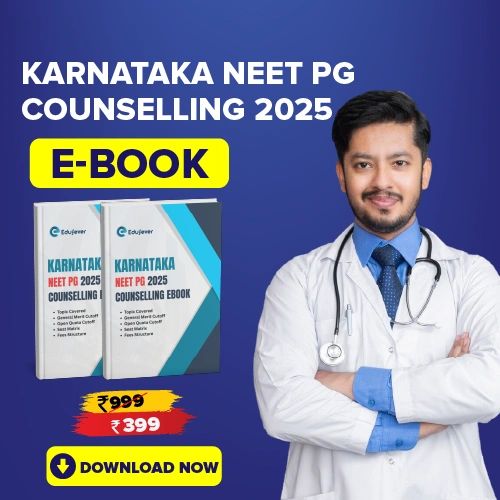NEET PG NRI Quota Eligibility & Document 2025: The NEET PG Counselling under the Medical Counselling Committee (MCC) have evolved significantly under the supervision of the Directorate General of Health Services (DGHS), Ministry of Health & Family Welfare (MoHFW), and continuous interventions of the Hon’ble Supreme Court of India.
The rules governing 15% All India Quota (AIQ), 50% PG AIQ, and 100% Deemed University admissions, including NRI, Muslim Minority, Jain Minority, and OCI candidates, are shaped by landmark Supreme Court judgments.
This article provides a clear, updated, and legally accurate explanation of:
- DGHS/MCC’s role in UG & PG counselling
- Key Supreme Court cases: Dinesh Kumar, Dar-Us-Salam, Anshul Tomar, Consortium of Deemed Universities vs. UOI (2017)
- Updated 2025 NRI Quota Document List under new MEA guidelines
- Priority system for allotment of NRI seats
- Who qualifies as NRI under the revised definition
If you are a candidate planning to apply under the NRI quota, this detailed guide will answer all your questions.
Evolution of DGHS Counselling: From 1984 to 2025
Counselling for 15% UG AIQ & 50% PG AIQ Since 1984
Since 1984, as per the Hon’ble Supreme Court’s directions in the Dinesh Kumar case, DGHS has been conducting:
- 15% All India Quota (AIQ) counselling for MBBS/BDS
- 50% All India Quota counselling for MD/MS/PG Diploma
But initially, this counselling applied only to Government medical colleges across India.
SC Expansion: Deemed Universities Brought Under MCC (2017)
Dar-Us-Salam Case (2017): 100% Seats of Deemed Universities Under DGHS
In 2017, the Supreme Court, in the Dar-Us-Salam Educational Trust vs. MCI case, issued a crucial direction:
DGHS/MCC must conduct counselling for 100% seats in all Deemed Universities (regulated by UGC), including their NRI, Muslim Minority, and Jain Minority seats.
This brought all Deemed Universities into a centralised, transparent, merit-based process, which MCC continues to conduct successfully every year.
| NEET PG Counselling Guide 2025 | |
|---|---|
| MCC NEET PG Counselling Guide eBook 2025 | 📥 Download |
| DNB Counselling Book 2025 | 📥 Download |
NRI Quota: Supreme Court Guidelines & Major Judgments
The NRI quota rules are primarily shaped by:
- Consortium of Deemed Universities in Karnataka & Anr. vs. UOI & Ors., W.P.(C) 689/2017
- Anshul Tomar vs. State of MP (2008)
The Supreme Court directed MCC to follow the Anshul Tomar principles for NRI eligibility until the matter is finally disposed of.
Who Is Eligible for NRI Quota?
As per Anshul Tomar Guidelines, followed by Supreme Court in 2017 the eligibility is divided into three major categories:
Category 1: Direct NRI Parents
A candidate is eligible if:
- The mother or father is an NRI, and
- They are ordinarily residing abroad
This is the strongest and primary eligibility.
Category 2: First-Degree Relatives Who Are NRI
If the father or mother is not an NRI, then first-degree relatives who are NRIs can sponsor.
These include:
- Real brother of father = Real uncle
- Real sister of father = Real aunt
- Real brother of mother = Maternal uncle
- Real sister of mother = Maternal aunt
- Father’s parents = Grandfather, grandmother
- Mother’s parents = Maternal grandfather, grandmother
Category 3: Guardian Sponsorship (Nearest Relative)
A candidate may be sponsored by a guardian who must:
- Be the nearest blood relative
- Be an NRI residing abroad
- Have actually looked after (guardian role) the candidate
- Provide supporting affidavit and evidence
Eligible relations under this category:
- Father’s real brother/sister
- Mother’s real brother/sister
- Paternal/maternal grandparents
- First-degree paternal/maternal cousins
Revised MEA Guidelines for NRI Certificates
On 30 July 2025, the Ministry of External Affairs (MEA) issued Revised Guidelines for NRI certificate issuance, enhancing verification and reducing fraudulent claims.
Under these guidelines, MCC has updated the mandatory NRI document list.
Updated List of Mandatory Documents for NRI Quota
Candidates applying for NRI quota must upload/email the following documents:
- NEET-UG Admit Card
- NEET-UG Score Card
- 10th & 12th Mark Sheets and Passing Certificates
- Birth Certificate
- Passport (optional)
Documents for NRI Sponsor
Proof of NRI Status:
- Valid Passport
- Residence Permit / Work Permit / Visa
- OCI/PIO Card (if applicable)
- NRI Certificate issued by Embassy/Consulate (mandatory under revised MEA guidelines)
Relationship Proof
- Family Tree certificate issued by competent Revenue Authority (Shows exact relationship between candidate and sponsor)
Sponsorship Affidavit
A notarized affidavit declaring:
- Sponsorship of full tuition fee
- Responsibility for living expenses
Must be supported by a NRE Bank Account Passbook
How to Submit NRI Documents to MCC
Candidates must send scanned copies via email to: nri.adgmemcc1@gmail.com
This submission must be done before each counselling round, only after MCC publishes a notice on www.mcc.nic.in.
MCC will:
- Scrutinize documents
- Verify eligibility
- Enable NRI seat choices for eligible candidates only
NRI Seat Allotment Priority System (Official MCC Method)
The Supreme Court-mandated priority system ensures fairness.
Priority 1: Highest Priority
- NRI Candidates
- Children of NRIs
These candidates get preference over all others.
Priority 2: NRI-Sponsored Candidates
Includes First-Degree Relatives who are NRIs
- Real uncle (father’s brother)
- Real aunt (father’s sister)
- Maternal uncle (mother’s brother)
- Maternal aunt (mother’s sister)
- Grandparents (both paternal & maternal)
Second-Degree Relatives (NRI Cousins)
- First-degree paternal cousins
- First-degree maternal cousins
How Allotment Happens
The allotment is done sequentially, meaning:
- First, all Priority 1 candidates are allotted seats
- Only after their options are exhausted does Priority 2 get seats
- Allotment happens strictly based on:
- NEET rank
- Choice filling
- Seat availability
This ensures complete transparency, merit, and legal compliance.
The NRI quota counselling process under MCC/DGHS is the result of decades of judicial oversight and administrative reforms.
The Supreme Court’s judgments, from Dinesh Kumar to Dar-Us-Salam and Anshul Tomar, have strengthened transparency, standardisation, and fairness in NRI admissions.
With the 2025 MEA guidelines, NRI documentation standards have become clearer and stricter, ensuring only genuinely eligible candidates get access.

